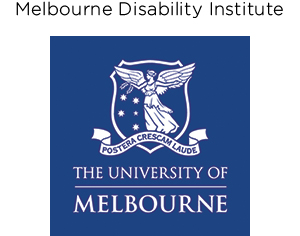Transport Accident Commission International Keynote Speaker

John Corrigan, pictured above, is Emeritus Professor in the Department of Physical Medicine and Rehabilitation at Ohio State University in the United States. He is also Director of the Ohio Valley Center for Brain Injury Prevention and Rehabilitation and, since 1997, has led the Ohio Regional Traumatic Brain Injury Model System – the longest, continuously-funded of 16 centres throughout the United States, aimed at improving the lives of 1,150 Ohioans who have sustained a traumatic brain injury, their families and communities by creating and disseminating new knowledge about the course, treatment and outcomes relating to their disability. He is also Editor-in-Chief of the most prestigious international journal in traumatic brain injury, the Journal of Head Trauma Rehabilitation. He is a member of the Board of Directors of the Brain Injury Association of America and the Neurological and Behavioral Health Subcommittee of the United States’ Department of Defense’s Defense Health Board. He has authored more than 150 peer reviewed publications and has received many awards for his service to brain injury rehabilitation, including the Brain Injury Association of America’s William Fields Caveness Award, the 2007 Robert L. Moody Prize and the Gold Key Award from the American Congress of Rehabilitation Medicine. Alongside delivering the International Keynote Address, Professor Corrigan will also participate in panel discussions on domestic and family violence and brain injury, and concussion and “mild” traumatic brain injury.
Keynote Speakers

Jennie Ponsford AO, pictured above, is Professor of Neuropsychology and Director of Clinical Programs in the School of Psychological Sciences at Monash University and Director of the Monash-Epworth Rehabilitation Research Centre at Epworth Hospital in Melbourne. She has spent almost 40 years years engaged in clinical work and research with adults and children with brain injury. Her research has investigated outcomes following mild, moderate and severe traumatic brain injury (TBI) and factors predicting outcome. She has also evaluated the efficacy of numerous rehabilitative interventions to improve outcome. She has published over 320 journal articles and book chapters, and two books on rehabilitation following traumatic brain injury. Professor Ponsford is Past-President of the International Neuropsychological Society, Past-President of the International Association for the Study of Traumatic Brain Injury and the Australasian Society for the Study of Brain Impairment (ASSBI), and serves on the Executive of the International Brain Injury Association and ASSBI. In 2013, she was awarded the Robert L. Moody prize for Distinguished Initiatives in Brain Injury and Rehabilitation and, in 2015, the International Neuropsychological Society’s Paul Satz Career Mentoring Award. In June 2017, she was appointed as an Officer of the Order of Australia for distinguished service to medical research in the field of neuropsychology and through seminal advances in the diagnosis, treatment and rehabilitation of patients with traumatic brain injuries.

Melinda Fitzgerald, pictured above, is Professor of Neurotrauma and Deputy Director of the Curtin Health Innovation Research Institute, at Curtin University in Perth, jointly appointed by the Perron Institute for Neurological and Translational Science. She is Leader of the Mission for Traumatic Brain Injury, a new Medical Research Future Fund initiative providing $50 million in Federal Government funding over 10 years. Her research goal is to improve outcomes for patients who have experienced traumatic injury to their central nervous system. She leads leads a team of 12 researchers and post-graduate students in studies to understand how damage spreads following neurotrauma, and uses findings from these fundamental studies to design and test treatment strategies. She is working with her collaborators and clinical research team to facilitate translation of her pre-clinical findings, focussing on prediction of persisting post-concussion symptoms, in order to identify suitable patients for treatment. The work is part of a broader nationwide strategy to predict and improve outcomes following traumatic brain injury of all severities. She has published over 80 scientific papers, including in discipline-leading journals such as Journal of Neuroscience, Nature Nano, ACS Nano, and Biomaterials. She has been awarded $8.4 million in funding to support her research. She is a Handling Editor for the Journal of Neurochemistry, the Australian representative for the Asia Pacific Regional Committee for IBRO and serves on a variety of grant review panels and scientific advisory committees.

Peter Schofield, pictured above, is Conjoint Professor in the School of Medicine and Public Health and in the School of Psychology at the University of Newcastle. He is Clinical Director of the Neuropsychiatry Service and a senior staff specialist in Neurology with the Hunter New England Local Health District. Trained in neurology and geriatrics in Australia and in behavioural neurology and epidemiology at the Columbia Presbyterian Medical Centre and Columbia University in the United States, his practice includes the evaluation of patients with a wide range of neuropsychiatric disorders, including those secondary to traumatic brain injury. His research interests include the epidemiology of dementing disorders, the development of novel instruments for the early detection of cognitive disorders and Alzheimer’s disease, and neuropsychiatric issues in offending populations, particularly traumatic brain injury and violence.
Conference Partner

Keynote Sponsor

Conference Airline

Conference Producer

For more information,
Interpoint Events Pty Ltd
A division of The Intermedia Group
ABN: 98 104 512 469
PO Box 55, Glebe NSW 2037
P 1300 789 845
F 02 9660 4419
E info@interpoint.com.au
